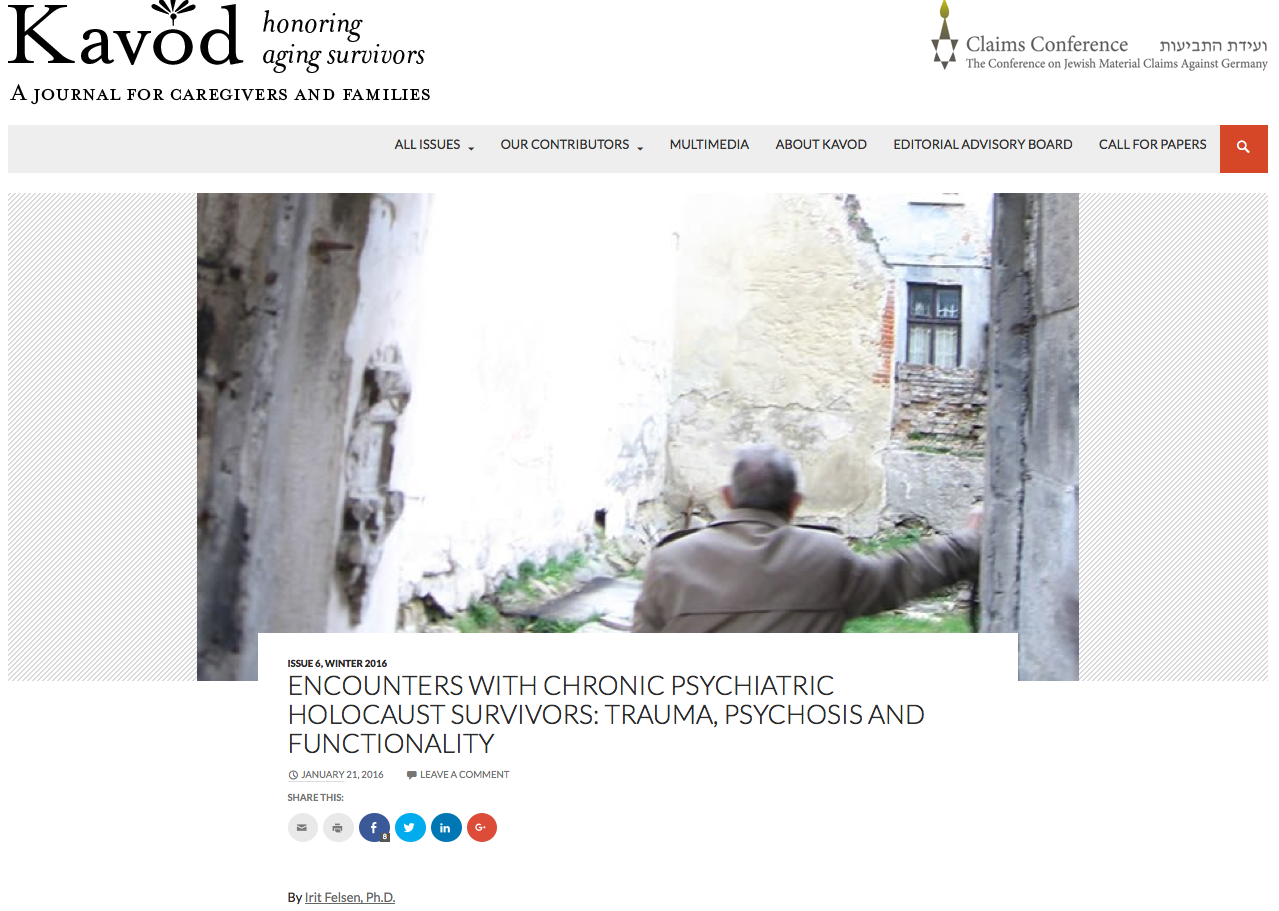Last week a paper I wrote, entitled “Encounters with Chronic Psychiatric Holocaust Survivors: Trauma, Psychosis and Functionality” appeared in issue 6 of the online journal “Kavod”. The paper can be found at http://kavod.claimscon.org/2016/01/encounters-with-chronic-psychiatric-holocaust-survivors-trauma-psychosis-and-functionality/. The paper describes a research project conducted by me and Dori Laub with chronically hospitalized psychiatric Holocaust survivors.
“Kavod: Honoring Aging Survivors” is a professional Journal for Care Givers and Families which aims to be a meaningful resource for caregivers to elderly Holocaust survivors, as it helps them navigate the unique challenges of working with this population. The journal also serves to highlight, to the greater community, the special needs of Holocaust survivors, which are often different from those of other elderly individuals, due to the long-term effects of prior traumatic experiences and their interactions with aging. The current issue features additional articles on Witness Theatre, a paper about the latest research on identity ruptures of Israeli and American based Holocaust survivors, and a paper about the Claims Conference Family Caregiver Support Seminars.
The abstract of my paper is reprinted below.
Irit Felsen
Abstract
This paper describes encounters with Jewish survivors of the Holocaust who were diagnosed with schizophrenia and spent decades in psychiatric institutions in Israel. The interviews with the patients took place in the context of the Testimony Project (Strous et al., 2005). The focus of this paper is on personal experiences during the interviews as an important aspect of the relational co-constructed encounters of the author with the chronically hospitalized Holocaust survivors. Notably, the patients interviewed were not experienced as disconnected, detached or disorganized as would have been expected according to the diagnoses they carried and their decades of psychiatric illness and institutionalization. The intersubjective qualities experienced in the encounters are discussed in relation to the differential diagnosis of schizophrenia and post-traumatic stress disorder (PTSD) with psychotic features.


Yay!!!
>